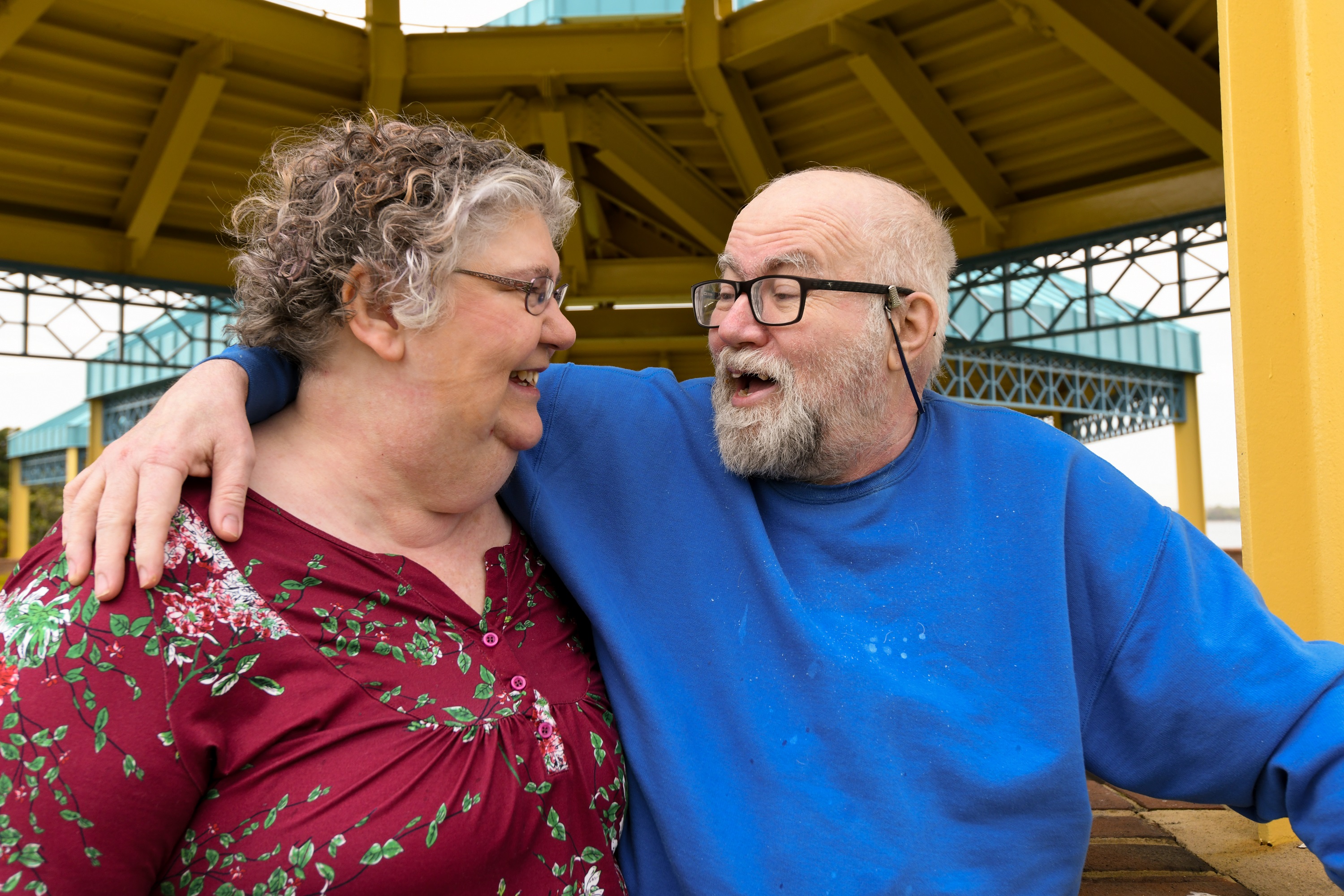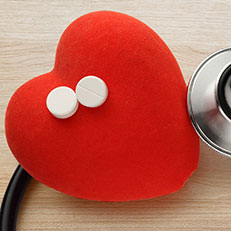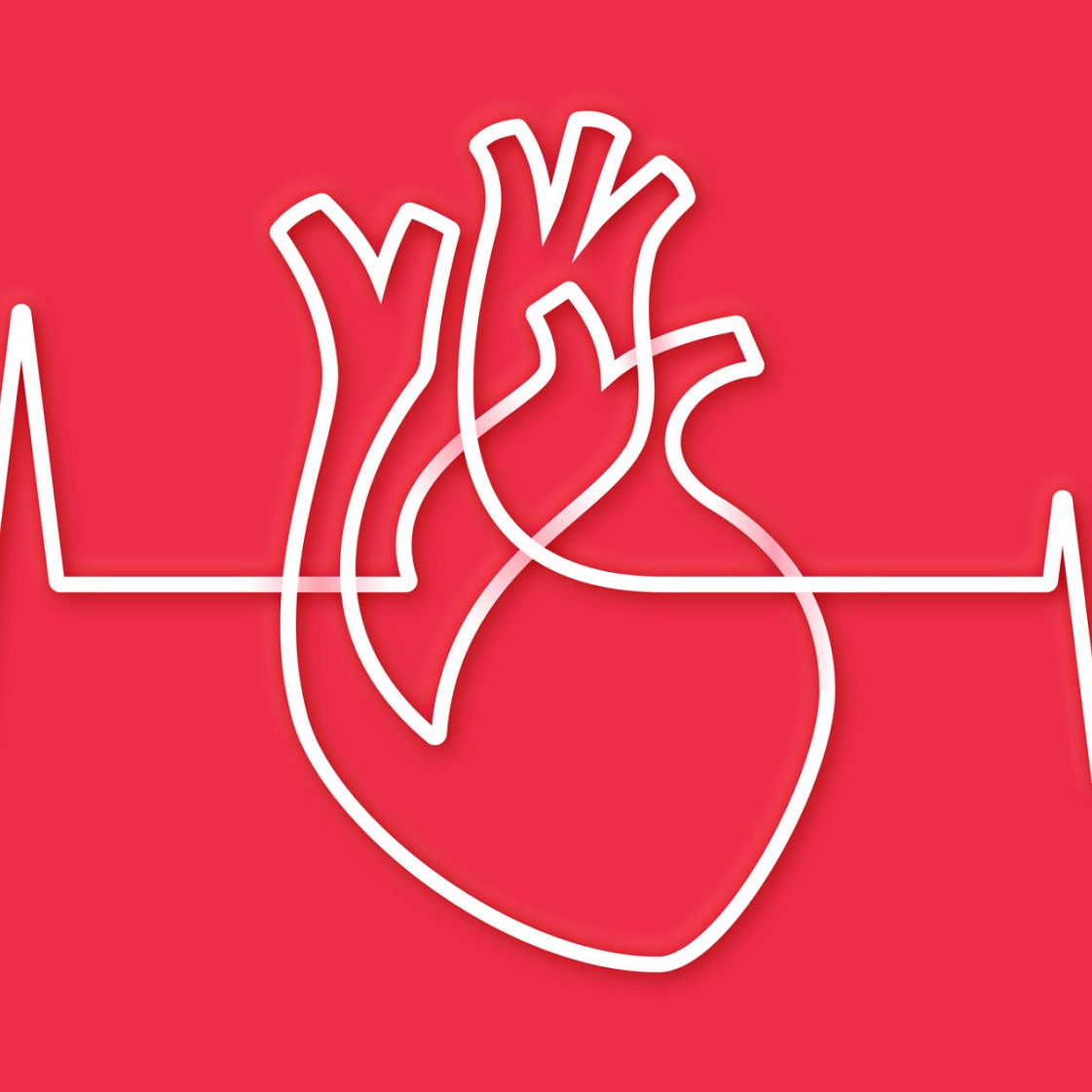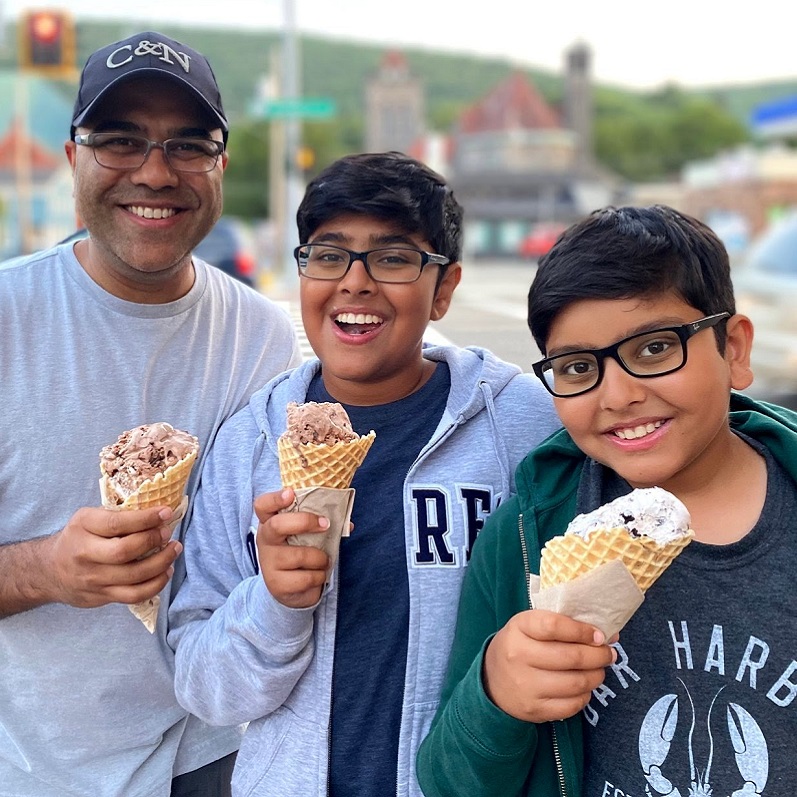Father of Four With Advanced Heart Failure Given New Hope

May 16, 2022
Despite heart medications and prior stent procedures, 63-year-old Michael Riley’s heart failure had progressed due to advanced disease and several heart attacks.
“Michael had complex heart disease, and his condition was rapidly deteriorating, requiring hospitalization, to treat his heart failure,” says Michael’s cardiologist, Shaddy Younan, M.D.
Michael’s severe type of heart failure meant that he had only six months or fewer to live—that is, until a team of cardiac experts at Jersey Shore University Medical Center joined forces to save his life and reverse his heart failure.
“Michael had been so ill, he did not have the strength to get out of bed on his own, and his kidney function was deteriorating from heart congestion and fluid build-up,” says Jesus Almendral, M.D., FACC, medical director, Advanced Heart Failure Program at Jersey Shore. “He wasn’t eating and was weak. When he was admitted to Jersey Shore, he was in cardiogenic shock, a life-threatening condition where the heart can’t pump enough blood to meet the body’s needs.”
A Temporary Solution
About 6.2 million Americans have heart failure, which is caused by conditions that damage the heart muscle, such as coronary artery disease, heart attacks, diabetes and high blood pressure. Advanced heart failure is the most serious stage of the condition.
“I suffered from heart attacks and had a pacemaker and defibrillator, but the congestive heart failure progressed so quickly. I was so weak, I could not hold my head up straight,” says Michael, who lives in South Amboy, New Jersey, with his wife of 40 years, Susan.
Dr. Younan contacted Deepak Singh, M.D., surgical director of the Advanced Heart Failure Program, and they devised a plan of care for Michael to save his life, utilizing leading-edge cardiac technology.
As part of the first step in his care, Dr. Singh placed an Impella® 5.5 temporary left ventricular assist device (LVAD), the world’s smallest heart pump, into position by inserting it through an artery under the collarbone and into the heart. Once in place, the pump was turned on, providing support to the heart while monitoring the pumping activity.
“This temporary procedure supported his heart function, got him better from a cardiogenic shock perspective and allowed Dr. Younan to perform shockwave coronary lithoplasty and additional stenting,” Dr. Singh says. The “shockwave” intravascular lithotripsy is a new technology combining a balloon angioplasty catheter with the use of sound waves—similar to that used for treating kidney stones—to open the arteries that supply blood to the heart.
Permanent Heart Fix
The shockwave stenting was successful: It enabled Michael to walk again and improved his kidney function. Still, his heart function did not improve, and a permanent solution was needed.
“Implanting the permanent HeartMate III LVAD is a high-risk open-heart procedure in patients with cardiogenic shock,” Dr. Singh says. “Patients with the most severe form of heart failure have about a 20-percent survival rate, so there was a lot at stake and Michael needed this type of intervention to survive long-term.”
Fortunately, Michael did well after the surgery to implant the heart pump. He was able to leave the hospital and start cardiac rehabilitation after nine days. Eventually, his cardiovascular function began to normalize, allowing him to carry on all his activities without any shortness of breath.
“I am still recovering and gaining my strength, but I feel so much better,” says Michael, father to four sons and former pastor and journalist. “Everyone comments about how much healthier I seem and how my outlook and mood have improved.”
“Treating advanced heart failure patients really does take a village, and our team is highly trained and compassionate. We have a cardiovascular intensive care unit with a full-time surgeon, which makes a difference for our patients,” says Dr. Singh. “Our work is high stakes, but we are fully committed to delivering the best possible outcomes for our patients and their families.”
Next Steps & Resources:
- For more information, call the Heart Failure Center at 732-776-4196.
- Meet our sources: Shaddy Younan, M.D., Deepak Singh, M.D., and Jesus Almendral, M.D., FACC.
- To make an appointment with a doctor near you, call 800-822-8905 or visit our website.
The material provided through HealthU is intended to be used as general information only and should not replace the advice of your physician. Always consult your physician for individual care.
Take a Daily Aspirin to Prevent a Heart Attack?

The U.S. Preventive Services Task Force in October 2021 released updated recommendations for preventative aspirin use: Adults over the age of 60 should no longer consider taking a daily aspirin to prevent a first heart attack or stroke.
Surprising Signs You May Be Having a Heart Attack

When people have heart attacks in movies, they usually clutch their chests dramatically, break out in a cold sweat and drop to the floor. In real life...

Top Fruits and Veggies for a Healthy Heart
Jason Sayanlar, M.D., FACC, a cardiologist at Hackensack University Medical Center, lettuce know the top fruits and veggies for heart health.

Denville, New Jersey, Father Receives Lifesaving Care After Life-threatening Aortic Dissection
Bonit Sharma is grateful for the care he received at Hackensack University Medical Center for a life-threatening aortic dissection.

Oradell, New Jersey, Woman in Perfect Health Has Major Heart Attack
One day, Manisha Mehta was given a clean bill of health. The next, she was fighting for her life.

6 Reasons Your Heart Rate is High
You’ve probably noticed that your heart rate rises when you exercise and that it drops when you’re lying in bed. But does your heart rate ever feel elevated for no apparent reason?